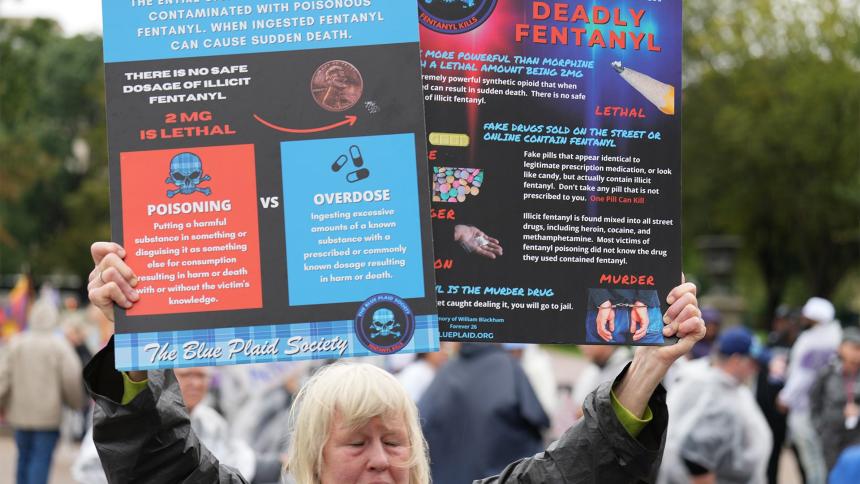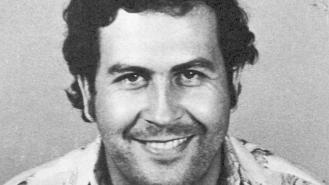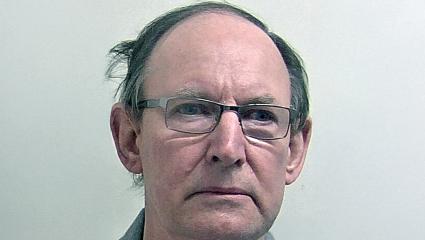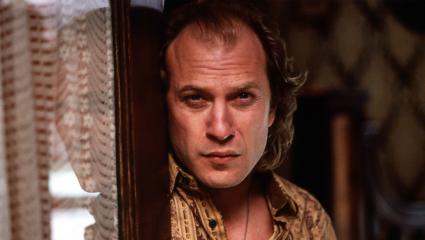
Raymond Donovan and the fentanyl crisis
Fame & FentanylRaymond Donovan was known for fighting against fentanyl in his job as chief of operations at the USA’s Drug Enforcement Administration. In 2023, he retired. Yet the fentanyl crisis continues.
A new Crime+Investigation documentary, Fame and Fentanyl, explores the deadly effects of fentanyl – a drug that’s up to 50 times more powerful than heroin. In this article, we’ll take a closer look at Ray Donovan’s efforts to defeat fentanyl and his views on the cause of the fentanyl crisis.
What is the fentanyl crisis?
Fentanyl is an opioid – the same type of drug as morphine, oxycodone or heroin. However, fentanyl is much stronger than any of these and it can be made in a lab, unlike heroin, which is created from poppies.
People in the US were already struggling with addiction to opioids before fentanyl came along. But fentanyl’s arrival in about 2013 made the crisis even worse.
Because fentanyl is so much more powerful than heroin, it also can cause overdoses far more easily. Sometimes, other drugs are tainted with fentanyl, and that can also cause overdoses. As a result, deaths from the fentanyl crisis are devastatingly high.
As the historian and true crime writer Richard Bevan puts it: 'For each of the 4 years of WWII, on average of 100,000 young American soldiers died … Now, the U.S. is losing an equivalent number of young people every year in a silent war against fentanyl.'
Who is Ray Donovan?
Raymond Donovan was well qualified to serve as a leader in the war against fentanyl. When he retired in 2023, he had 28 years of experience with the US federal government under his belt.
At first, Donovan was an agent with the US Border Patrol. But after two years, he moved on to work for the DEA – and that’s where he stayed.
For over a decade, Donovan was a part of efforts to combat the drug trade in New York - first as a special agent, then as a leader. His team was known for targeting money laundering that was connected to drug trafficking.
But in 2012, Ray Donovan was assigned to an even larger mission. He became part of a multi-agency initiative to oppose drug trafficking at the largest scale – and that meant dealing with cartels.
Ray Donovan and El Chapo
In 2015, Ray Donovan led the effort to capture Joaquín Archivaldo Guzmán Loera, known as El Chapo. El Chapo was the head of the powerful Sinaloa drug cartel. According to Donovan, El Chapo was responsible for introducing many heroin users to fentanyl, an even stronger and deadlier drug.
Clearly, battling fentanyl had become central to Donovan’s career. Yet his huge successes in clashes with money laundering operations and international cartels weren’t enough to put out the fire of the fentanyl crisis.
A Congressional investigation
In 2024, the US House of Representatives launched an investigation into the Chinese Communist Party’s role in the illegal fentanyl trade.
In his testimony to the investigation, Ray Donovan argued that China was the origin point of the fentanyl crisis. Donovan said that China was the source of 'fentanyl precursors' – chemicals that were used to make fentanyl. As evidence, Donovan noted that when Wuhan was locked down due to the Covid pandemic, illegal fentanyl supplies in the US drastically decreased.
Donovan’s argument was that China’s government was not doing enough to end its criminal organisations’ roles in fentanyl production and related money laundering. In fact, he argued that China was intentionally allowing the fentanyl trade to thrive.
Is combating fentanyl from China the key to ending the crisis?
We’ve talked about how El Chapo provided fentanyl to people who were already using heroin. But it’s worth remembering that opioid addiction doesn’t always mean illegally imported drugs.
And many agree that the opioid crisis originally started with the legal drug oxycodone, which was prescribed too broadly. Sometimes, people who got addicted to legal opioids move on to illegal ones later on.
That’s Richard Bevan’s view. He argues: 'The fentanyl crisis is a product of a for-profit health and pharmaceutical industry that lied to the American people, knowingly addicted millions to prescription opioids and is walking away with billions in profit and not a single successful criminal prosecution of a senior decision maker.'
Looking for more stories and deep dives into the world of cartels, money laundering and international crime? Keep up to date by signing up for the Crime+Investigation newsletter! We’ll share exclusive content and news with you weekly – as well as clips, competition information, and more.











